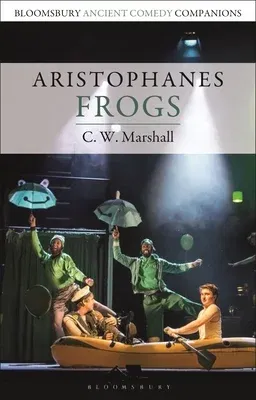A comedy about tragedy and a play about playmaking, Aristophanes'
Frogs (405 BCE) is perhaps the most popular of ancient comedies. This
new introduction guides students through the play, its themes and
contemporary contexts, and its reception history. Frogs offers
sustained engagement with the Athenian literary scene, with the politics
of Athens at the end of the Peloponnesian War, and with the religious
understanding of the fifth-century city. It presents the earliest direct
criticism of theatre and a detailed description of the Underworld, and
also dramatizes the place of Mystery cults in the religious life of
Athens and shows the political concerns that galvanized the citizens.
It is also genuinely funny, showcasing a range of comic techniques,
including literary and musical parody, political invective, grotesque
distortion, wordplay, prop comedy, and funny costumes. Frogs has
inspired literary works by Henry Fielding, George Bernard Shaw, and Tom
Stoppard.
This book explores all of these features in a series of short chapters
designed to be accessible to a new reader of ancient comedy. It proceeds
linearly through the play, addressing a range of issues, but paying
particular attention to stagecraft and performance. It also offers a
bold new interpretation of the play, suggesting that the action of
Frogs was not the first time Euripides and Aeschylus had competed
against each other.

